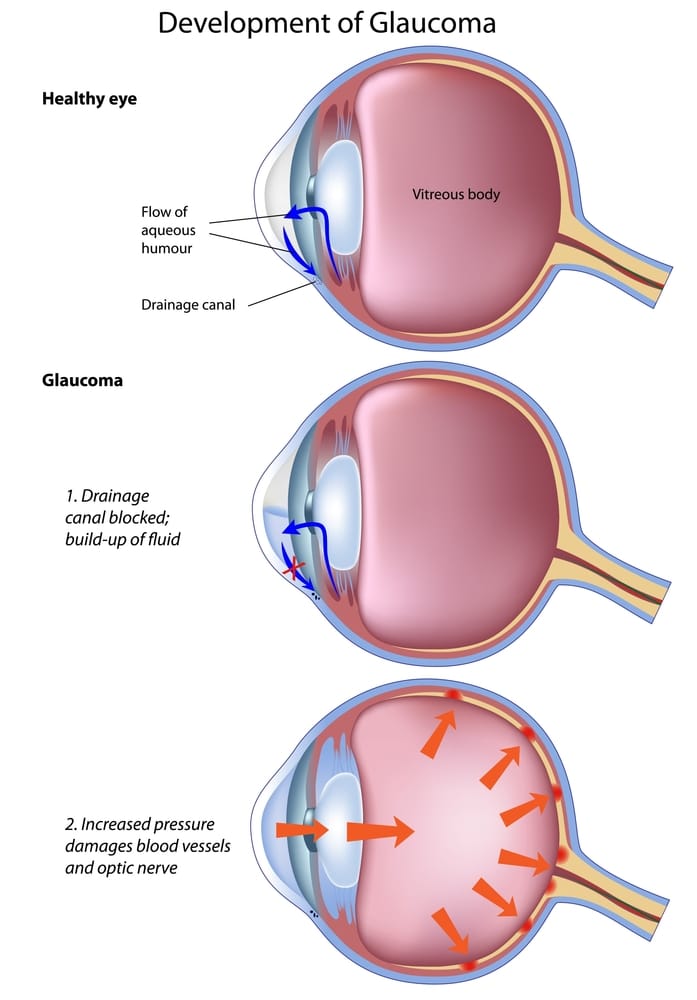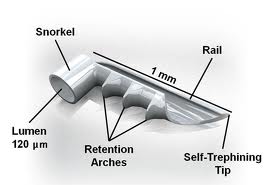Do you have cataracts? Are they making it difficult to see the world around you? When cataracts are severe, many people choose to have cataract surgery and regain their clear vision!
If you have glaucoma, you may be wondering if you can undergo cataract surgery. Keep reading for some insight into treatment options and if you can get glaucoma surgery if you have cataracts!
Understanding Cataracts and Glaucoma
Cataracts

Cataracts happen when the proteins in your lens clump together, making it harder to see. These clumps often gather in the middle of the lens and can make your eyes appear cloudy.
Many people don’t experience symptoms during the early stages of cataracts. As the condition develops, your vision may become blurry. You may also start seeing halos around lights.
Cataracts can make it hard to perform close-up activities and drive a car. Cataracts and driving do not go together, since you may notice glare or halos around the headlights of oncoming traffic.
You may also see colors as more faded than they are or view the world with a yellowish or brown tint. Eye doctors treat early-stage cataracts with prescription glasses or contacts.
It’s important to realize that getting new glasses or contacts are only temporary solutions. Cataracts will only get worse over time as they continue to develop.
It may be time to consider surgery when the condition affects your daily life and you can’t perform everyday activities. People usually choose the procedure when visual aids are no longer helpful.
The most common cause of cataracts is due to aging. Although you may not know you have them, you can start developing a cataract when you’re as young as forty!
Once you’re in your sixties, you may start noticing visual symptoms that distort your vision and make it harder to see. Eye doctors check for signs during preventative screenings and eye exams for people over the age of 40.
Besides aging, you can also develop cataracts due to trauma or even if you have medical conditions like diabetes. Using medications like corticosteroids or undergoing radiation may also increase your chance of developing cataracts.
Cataract Surgery

During cataract surgery, an eye doctor will remove the natural lens of the eye and replace it with an artificial lens, known as an intraocular lens. If you undergo laser-assisted cataract surgery, your surgeon will use a laser to remove the natural lens.
Removing the natural lens also removes the cataract. By removing the lens and the cataract and replacing the lens with an IOL, you’ll regain your clear vision.
There are many kinds of IOLs available, but you and your ophthalmologist will choose the one that’s best for you before you have cataract surgery. This involves taking your lifestyle, visual needs, and goals after cataract surgery into account. If you don’t want to wear glasses after cataract surgery, a premium lens will be the best choice, as they reduce your dependence on glasses.
Glaucoma
Glaucoma is one of the top causes of blindness in people who are older than 60. Glaucoma affects the optic nerve and limits vision. Left untreated, glaucoma leads to irreversible vision loss.

You likely have high eye pressure if you have glaucoma. Medications can cause ocular hypertension.
Improper drainage and producing too much aqueous fluid also increase pressure. Eye trauma and pigment dispersion syndrome may also factor into this condition.
Glaucoma often has no early symptoms. People with the condition will slowly lose their vision.
Those with sudden acute angle-closure glaucoma may suddenly have limited sight. This vision loss is untreatable. It must be addressed as soon as possible to prevent it from worsening.
People who have glaucoma may get surgery to reduce their eye pressure. During these procedures, an eye doctor uses lasers or a surgical tool to create a small incision in the trabecular meshwork.
This drainage area naturally encourages fluid to exit the eye. Having an extra area for drainage is helpful for patients who have clogged drainage canals.
Glaucoma and Cataracts
It is possible to have glaucoma and cataracts in one or both eyes. Your conditions may coexist without any issues. Some cataracts increase your likelihood of glaucoma.
Glaucoma medications can increase your chances of developing cataracts. Getting a trabeculectomy or undergoing a tube shunt procedure for glaucoma can also increase your risk of cataracts.
As cataracts grow more severe, they cause the lens to thicken. This process narrows the drainage angle of the trabecular meshwork. It may add to your likelihood of developing glaucoma.
Cataract Surgery for Glaucoma Patients
The good news is that it’s possible to surgically treat cataracts and glaucoma at the same time. Surgeons do this by removing the lens and implanting a new one if you have glaucoma.
Taking out the natural lens can lower eye pressure. The artificial lens is usually thinner and takes up less space.
You may also be a candidate for glaucoma surgery called MIGS or Minimally Invasive Glaucoma Surgery. Some patients who have both procedures are able to reduce or stop taking glaucoma medication after cataract surgery.
MIGS – iStent

The iStent® is a tiny implant that improves aqueous fluid drainage. By improving this fluid drainage, it relieves eye pressure. The implant bypasses the blocked natural drainage pathways.
The iStent® lowers the fluid in the eye, which slows damage to the optic nerve. It cannot restore sight but may slow glaucoma-related vision decline.
For patients that have both glaucoma and cataracts, you can have the iStent® implanted during cataract surgery. This means you won’t have to worry about having two procedures!
You’ll receive local anesthesia, and then your surgeon will remove your natural lens and replace it with your new IOL. After removing the cataract, they will insert the iStent® device.
Once it’s implanted, you won’t be able to see or even feel the iStent® device. Why should you have several surgical procedures when you can treat both conditions at the same time?
If you have both cataracts and glaucoma, you may think that you need two procedures, but with MIGS, you only need one! Want to learn more and find out if a MIGS procedure could be right for you?
Schedule an appointment at Takle Eye Group in Griffin, GA, today!




